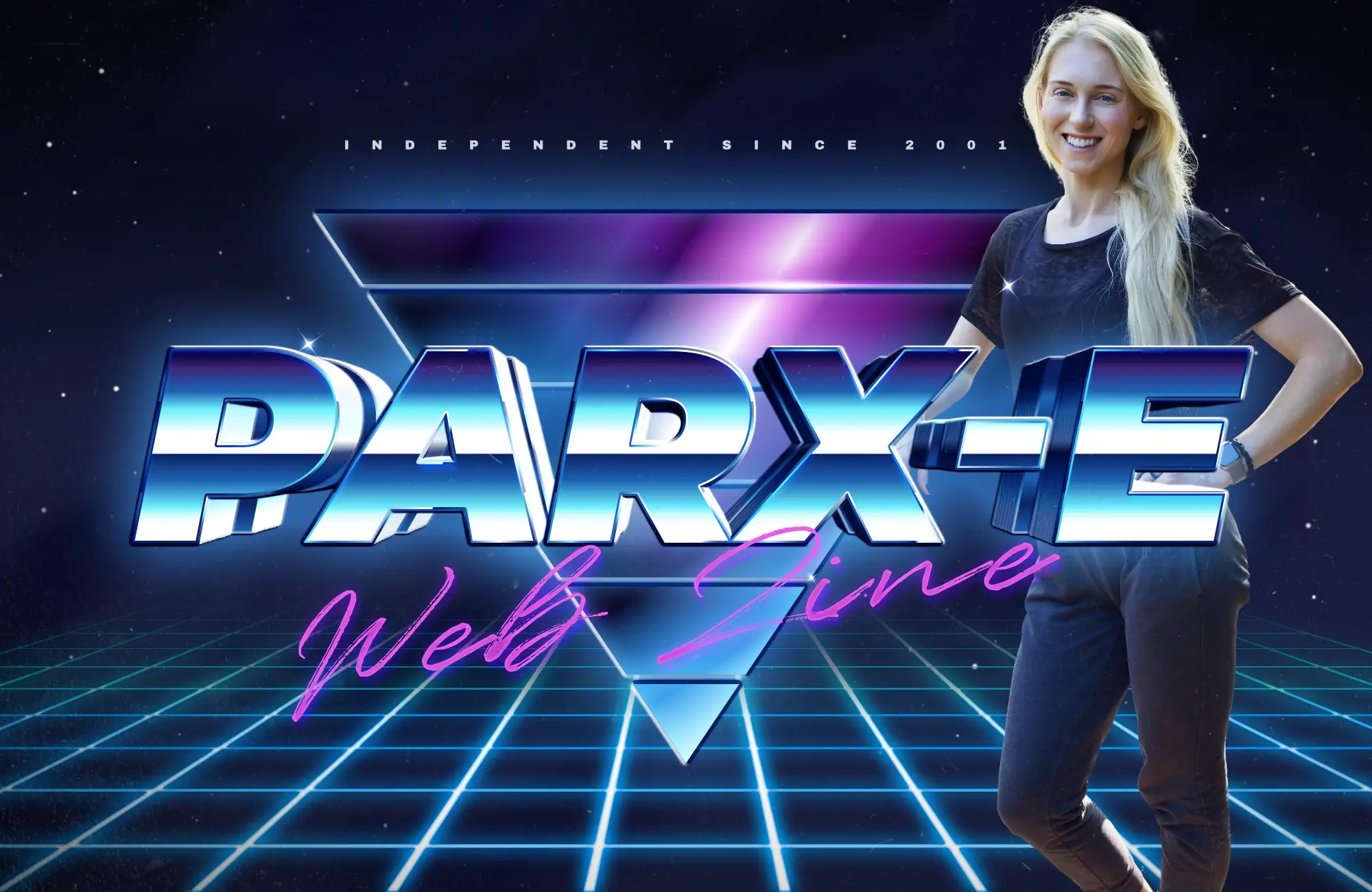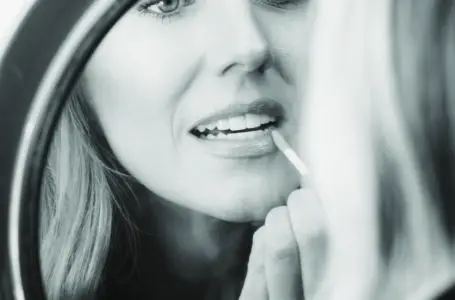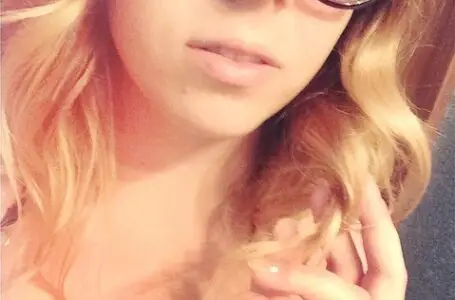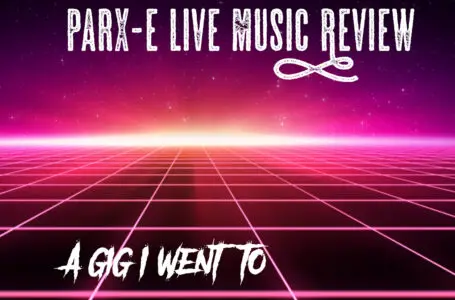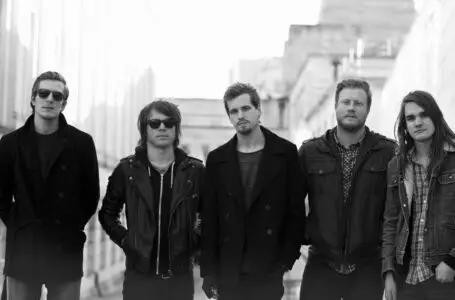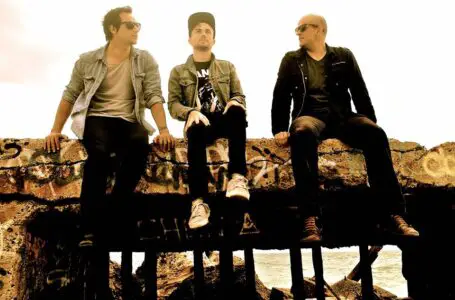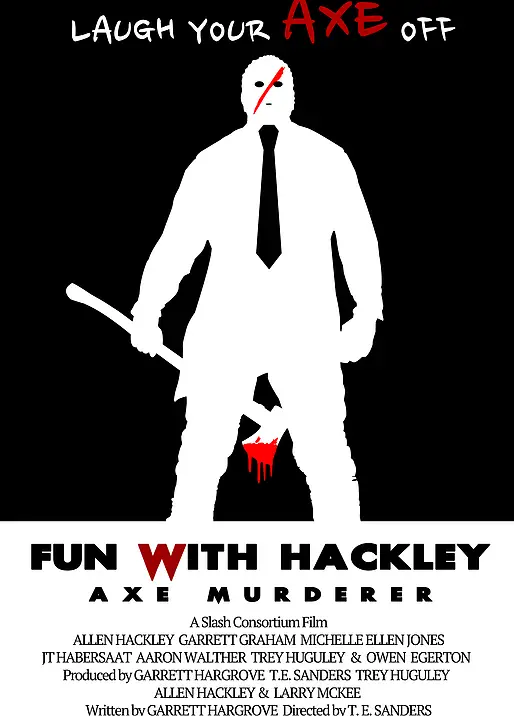
Fun With Hackley: Axe Murderer
Filmmakers Interview
When I first heard about this movie I was made as keen to find more about it. It’s a horror comedy and it is a lot of fun and I suggest you check it out when it becomes available to do so. So the film makers kindly answered my questions.
http://www.funwithhackley.com/
T.E. = T.E. (Tim) Sanders – Director/Producter
G.H. = Garrett Hargrove – Writer/Producer
T.H. = Trey Huguley – Actor (El Matador)/Producer
1. What was the inspiration behind the film?
T. E.: Garrett. Garrett was my inspiration behind the film. That guy is a walking museum of the Horror genre. We got together to do a 48h film fest, and he came up with this idea to make fun of some horror tropes with these two characters walking away from Hackley, but with one facing and looking backward toward Hackley while they all continue to walk, there-by forcing the rule that he can’t attack while being watched on a follow mission, and thus the world was born. A masked serial killer that has to follow rules. More inspiration came from our day jobs in the software industry (I’m a software engineer) and the office scenarios that such a job entails. Combine those, and BAM! You got Hackley’s world. He doesn’t engineer software, he engineer’s death and destruction, but it sucks like any office job because… rules. You have the bureaucracy. Showing how we all corral each other into these tight little lines (or cubes in this case) and prevent us from doing our best work was interesting to me. And of course, the shit can be funny too.
G.H.: And Tim… you’re my inspiration. *teardrop* You da real MVP.
2. How long did it take to write the script?
G. H.: The initial script was a pretty quick write. Like a couple of weeks. Then it went through rewrites all the way through pre-production and production. We were even adding scenes/shots our very last day of filming. I think that’s pretty common to get into something, find it doesn’t work or find something special and want to evolve the script to really bring that out.
3. How long was the shoot and what challenges did you face when making a low budget film?
G. H.: We did a very non-traditional shoot. Normally it’s like 26 out of 32 days or so where everyone comes in, commits to that project for that month and then the actors and crew are done. We didn’t have the funds for that, so we ended up shooting when we could on weekends over the course of a year (April 2014-April 2015). There was good and bad with that. Good was that it made scheduling easy. We treated every weekend shoot like a short film. I scheduled it so we would try to have actors get all of their scenes done in that weekend and we could be done with them. The bad thing was, we had to find times that would work for all of our key players who were around for everything (Director, DP, Allen Hackley, etc).
And oh lord, what challenges DON’T you face when making a movie for a budget that is below what Hollywood considers “Low Budget”? When you do low/no budget, the producers end up wearing a ton of hats. I, in addition to writing and producing, handle the budget, catering, some of the casting, most of the costumes, most of the locations, most of the props, etc. Tim, in addition to being producer and director has single handedly done nearly all of the post production, did a lot of casting, set decoration and construction and acted as primary irritant to our Emmy award winning DP, Larry McKee. Trey, award winning actor and Producer, directed the music video at the end, handled most of our marketing and social media, brought on a lot of the cast and allowed his wife to kill and be killed in the film.
I think the biggest thing you would see on screen with the budget is the gore. With this being a comedy, we felt the gore had to be either non-existent or over the top insane to work. Being no budget, we didn’t feel we had the money to do over the top gore right, so we went with the other way thinking it was funny how clean everything was in this horrific world.
And now I’ve droned on for way too long.
4. How was the cast chosen for the movie?
T. E.: We’ve all been doing the filmmaking thing for awhile, and are all plugged into the scene in both Austin and Houston enough that there was never any cricket sounds when the question was asked; “Who should we get to play so-and-so?” We had plenty of people to choose from. In some cases, I think Garrett even wrote with certain people in mind. For example; Owen Egerton for Asparagus, and Trey Huguley for El Matador. There’s probably more. But these are all people in the area and were somewhere in the circle peripherally, or right in the middle as was the case for Trey. As a director, I believe casting is one of the most important parts. Done right means I can just go hang out at the craft table more and sometimes even sneak in a nap.
5. What did you learn from making the movie?
T. E.: That making a feature film is fucking HARD. Can I say fucking? If not just replace it with astrix. But yeah, making a feature film is hard work, and I did all the post myself. All. The. Post. Which I do not recommend doing BTW. Get some post production money! I’ve done many, many short films and my hair kept its color. But a feature? I guess that’s one of the biggest lessons. Don’t try to do everything yourself.
G.H.: Debating whether or not to make the “Making a feature film is really fucking easy when Tim does all the work” joke or if he will punch me for making it.
T.H.: I learned that I needed a better editing system so that I could help T.E. with post so he doesn’t have to cuss as much.
6. Why do you think Horror Comedy are popular?
G. H.: Comedy has always been generally accepted. Its just life. We love laughing. It feels good. I think horror was always kind of viewed as the black sheep of the film world. I think especially back in the 80’s with the slasher genre, it was really looked down upon by film snobs. I think a lot more people liked them than would admit it publicly. And then I think the blockbuster success of Scream changed that and they became more accepted, mainstream, etc. Studios started throwing more money at them.
And I think combining people’s upfront love of laughing and their guilty pleasure of horror films really has hit a soft spot with viewers. Its also brought together the people who adore horror movies and the people who abhor them and laugh at their tropes.
7. How important is having the right promotion material for the film like artwork and so on?
T. H.: It’s vital. Before anyone ever sees the film, they’ll see the poster, trailer, facebook page or twitter account so you have to do it right. In the 2 seconds that someone initially glances at anything that is promoting your film, they will make a subconscious decision whether or not their “journey” with the film will go any further. If it looks like crap or doesn’t stand out that journey ends there. The market is saturated with other great films from awesome filmmakers from all over the world trying to scream about their projects from the rooftop, so how you promote and first impressions mean everything.
8. Are you happy how the film has been received?
T. E.: We’re just getting started, so not many people have seen it yet. And it is a niche film which requires a certain sensibility from the audience. I’ve found that my geek compadres, and horror fans etc., get it and laugh at all the spots where you’d expect it. Showing it to my 86 year old aunt? That didn’t turn out so well. I still have a bruise from the skillet she threw at me.
9. What is next for yourself?
G. H.: I am totally all in on Hackley. Want to explore this world and the different divisions in the company Hackley works for or even other companies. I have already started writing the sequel in the hopes somebody likes our film enough to want to see more and start a franchise. When we go to pitch distributors, we are going to come with pitches for a sequel, a prequel, a web series and a TV series, so we could expand this world in any way they want to go. There are so many ideas we didn’t have room for in this first one and can’t wait to explore in further content.
T.H.: Really I’d echo what Garrett said. On top of that I think I must be a masochist or something because I am going to take a weekend detour in the coming months to take part in the 48 Hour Film Project, which is a lot of fun but pretty tiring and stressful. But, hey, It’s what started Hackley 5 years ago, so who knows what it might spawn.
10. How did the score come about for the film? How did you get it to work with the movie?
T. E.: I’m a multi-instrumentalist musician and have done soundtrack stuff before so that was one of the easier things to do. It took awhile because it was the longest thing I’ve done, but I love how it turned out. I especially liked how Asparagus’ ironic surf theme turned out. And Hackley’s piano music. Getting those things to work just takes a lot of passes until you find something that clicks. Hackley’s piano music had been bouncing around in my head for awhile because we’d been working on this thing for awhile, and we all knew his music had to be somehow reminiscent of the old horror piano pieces. And, of course, there’s Trey and Chuck, which Trey will talk about. They did an excellent job on many of the songs; like the music video at the end, which is another reason the soundtrack stuff went so smoothly for me in post.
T.H.: In addition to the score that T.E. did so incredibly on – I’d add that we were fortunate enough to get to work with Chuck Vail at New Folder Studios to record the Fun with Hackley Rap song. Some of the other songs used in the film were also previously recorded “Bleached Whites” rap songs that were recorded at Chuck’s studio and that we had the rights to because…well…they’re my songs.
G.H.: Yup! Trey’s song “Addicted to Bacon that was featured in the film was also shown on the History Channel at one point! It is brilliant:
11. How do you think social media has played a part in getting the film out there?
G. H.: Its vital. We’re certainly not the best at it, but the wider you can cast your net on social media, the better chance you have of finding your core audience and having your audience find you. Especially with our film, a small niche horror comedy. We realized from the start that a lot of non-horror fans might not get it. We were hoping to make a movie that would appeal to both horror fans and non-horror fans, but we think horror fans will really love the inside jokes of the slasher genre and if we can get our film or trailer in front of their eyes and they can share it with the groups of people they hang out with who also have similar tastes, then we’ve done what we set out to do and we could not do that without social media.
12. How do you feel about this proposed Screening Room service where you will be able to watch the latest blockbuster at home without leaving the house to see it at the cinema?
T. E.: I haven’t read up on Screening Room specifically lately so it may have changed since I first read about it. I think they’re on an interesting track, but when I got to the 50 dollars per movie part, I was like WTF? Did I read that right? I want to make a living with film as much as any filmmaker, but seems they’ve forgotten what a movie even IS. I’m not sure of their end goal, or what problem they’re trying to solve. To me, a problem they could solve with something like this is availability. Isn’t the guy pushing this the dude that did Napster? That’s where it’s at. We need a torrent back-end service with a Facebook like front-end with sharing and all that and just charge a monthly that’s enough to get some money down to the filmmakers (and give credits or something to those that share the most, and not follow the Spotify business model fiasco). What we end up with is a huge library where even the most obscure film would be easy to find. There would be less pirating if they would approach it this way, and more movies would have the opportunity to find their audience just by virtue of being easily obtainable. How many times have you heard about some film and thought; “Hey, I want to check that out.” so you go check Netflix… not there, Amazon Prime… not there, Hulu… not there, the other usual suspects…not there. We live in a world where we expect to get what we heard about immediately, and thus you end up with one of the main motivations for movie pirating — aside from those foreign street vendors or people who trade torrents like baseball cards. At the very LEAST it might cut down on those silly cam-shot pirated movies from the theater. Why would you watch that if you could easily have the real thing? I have a lot more to say about this subject because I’ve been thinking about this problem for a long time as both a filmmaker and a software geek, but don’t wanna bogart the interview so I’ll pass it on.
G.H.: Sweet. One more step until we become the blobby people at the end of WALL-E. So excited for us to not have to get up or think about anything and just have everything delivered to us without effort.
But, I think in most regards we live in a very exciting era. We have instant access to pretty much whatever entertainment we want. But on the flip side, since it takes no effort to acquire that entertainment we are also pretty flippant with it and quick to dismiss. You may be a little younger, Chris, so you may not remember, but when you had to go out, drive somewhere, hope they had the movie you wanted, you were going to f’ing watch it. And since you went out of your way to acquire it, you were damn sure hoping you were going to like it, automatically shifting your views about the films more positively. Now, people are so negative. It was easy to acquire, so it would be easy to dismiss. I do it, too. I’m not just pointing the finger at other people. I flip through Netflix. If I see something that looks interesting, I start watching it. I burned about 2 and a half calories to start to watch it. And if it hasn’t hooked me in 10 minutes, I am usually back burning another 2 calories finding something else to entertain my fat face.
And coming back to the original question. The technology is cool. I am all for film makers finding new avenues for revenue to to get their films out to the public, but dumbing down the acquisition process, I think will lead to a lesser appreciation for the craft of film making.
13. How important is to you to have physical copies of your films (EG DVD & Blu-Ray) and make them something worth having?
GH: I may not be the right person to ask because I’m still addicted to Blu-Rays and DVDs. I have a big digital collection of films (all purchased legally), but still buy big films on Blu-Ray. There’s just something about physically holding something in your hand that is very gratifying. And there’s something about the way I said that in which it could totally be misconstrued or taken out of context to embarrass me.
T.E. That’s what she said, G.
